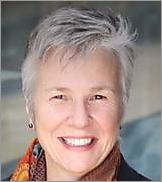
In a newly-released TEDMED talk, Sharon Terry of Genetic Alliance describes her journey to becoming a citizen scientist after her two children were diagnosed with the genetic condition pseudoxanthoma elasticum (PXE), which causes the symptoms of premature aging. She quickly learned “that there was no systematic effort to understand PXE . . . researchers competed with each other because the ecosystem is designed to reward competition rather than alleviate suffering.” In response, Terry and her husband, Patrick, educated themselves on the disease and gathered thousands of similarly affected people to initiate studies and clinical trials. The message of her talk is that “citizen scientists, activists using do-it-yourself science, and crowdsourcing are all changing the game.” Ms. Terry is a member of the working group for the LawSeq project, which is laying the policy groundwork to translate genomic medicine into clinical application; the principle investigators are Consortium Chair Susan M. Wolf, JD; Ellen Wright Clayton, MD, JD of Vanderbilt University; and Frances Lawrenz, PhD of the University of Minnesota. Last December, the Consortium sponsored an event on patient-led medicine and citizen science; video can be viewed here.